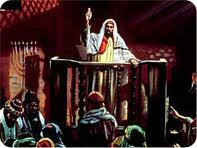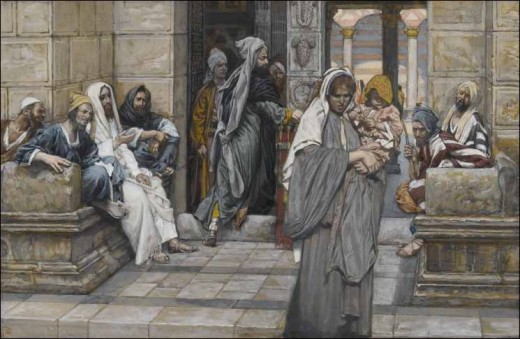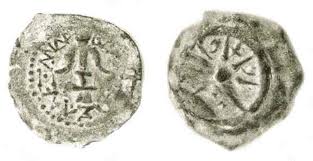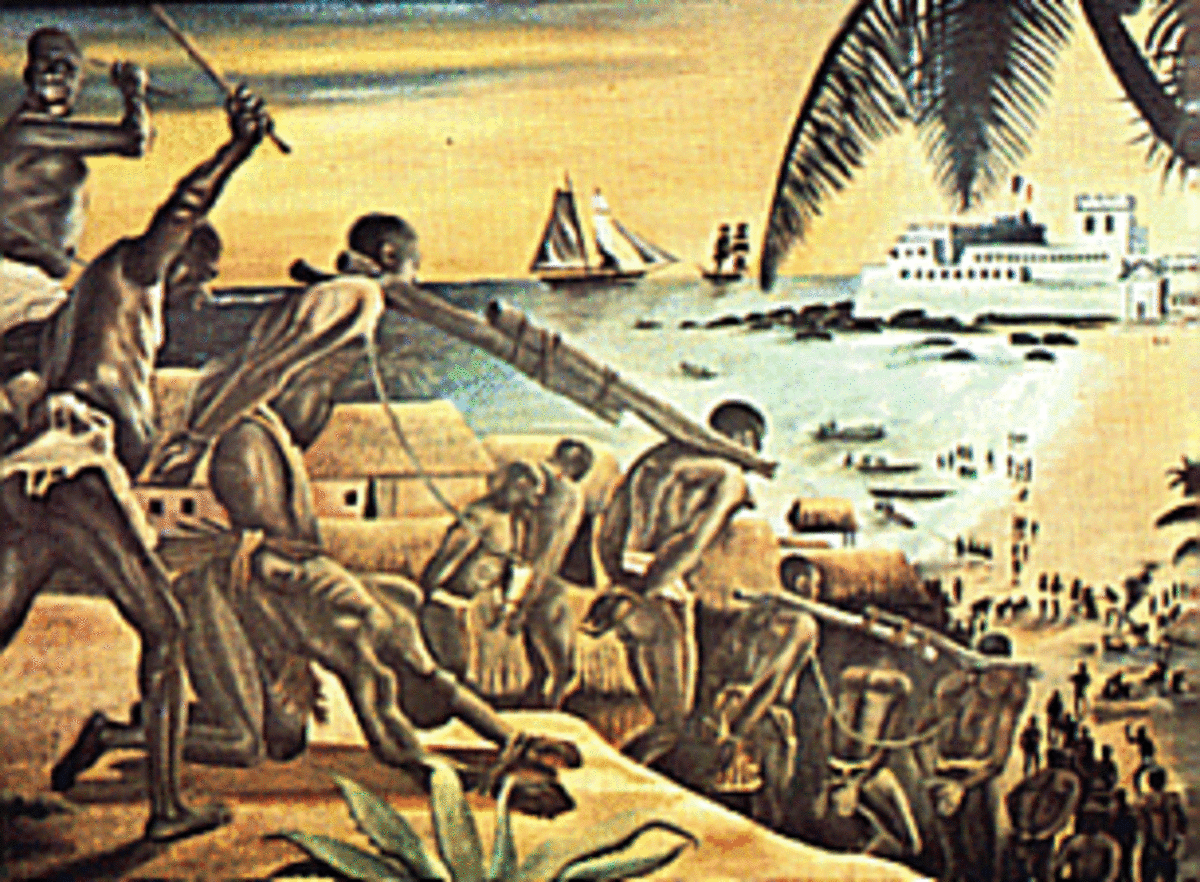The Story of the Poor Widow in the Bible: It is not what you learned.

It is in the Scriptures that we find the heart of God for the poor, the fatherless, and the widow. His heart was so moved by their suffering and oppression that throughout the entire Bible God continually instruct His people to care for them.
Most importantly, He warns every one of the consequences of oppressing and plundering the widow and the fatherless, “Ye shall not afflict any widow, or fatherless child. If thou afflict them in any wise, and they cry at all unto me, I will surely hear their cry; And my wrath shall wax hot, and I will kill you with the sword; and your wives shall be widows, and your children fatherless” (Exodus 22:22-24) (KJV).
In Psalms 68:5, David calls God the father to the fatherless and a judge to the widows. He is their defender (Deut 10:18). He teaches to seek judgment and relieve the oppressed, judge the fatherless and plead for the widow (Isaiah 1:17). He promises blessings to those who leave behind a sheaf in the fields for them when cutting down their harvest (Deut 24:19).
God uses the widows in the Bible as examples. Miracles were performed and lessons were taught through the widows. You will find the examples of widows in Ruth, 1 Kings (Elijah’s widow), and many other places in the Old Testament and the New Testament.

In the New Testament, the greatest story of a widow and the most widely example used in churches is of the poor widow found in the Gospel of Mark 12:38-44 and Luke 20:45-47; 21:1-4.
The story begins with Jesus. Jesus is in the temple teaching and preaching the Gospel to the people, when elders, chief priests, Sadducees, and scribes approach Him and begin to harass Jesus in an attempt to trap Him and turn Him over to the governing authorities. However, their attempts fail and they leave. After they leave, this follows:

Mark 12:38-44 (KJV)
38And he said unto them in his doctrine, Beware of the scribes, which love to go in long clothing, and love salutations in the marketplaces,
39And the chief seats in the synagogues, and the uppermost rooms at feasts:
40Which devour widows' houses, and for a pretence make long prayers: these shall receive greater damnation.
41And Jesus sat over against the treasury, and beheld how the people cast money into the treasury: and many that were rich cast in much.
42And there came a certain poor widow, and she threw in two mites, which make a farthing.
43And he called unto him his disciples, and saith unto them, Verily I say unto you, That this poor widow hath cast more in, than all they which have cast into the treasury:
44For all they did cast in of their abundance; but she of her want did cast in all that she had, even all her living.”

It is this story of the widow that has been used as a model of “sacrificial giving” and “faith” by church leaders for many decades. It is what religious leaders, Bible schools, and even commentaries have taught and continue to teach. Now I will pose a challenge to my all my readers, especially Christians, in the hopes that it will liberate them. Put aside any thoughts or any previous teachings you have on this story, put down your commentaries and any other literature concerning this teaching, and re-read this story afresh only from your Bible. He that has ears to hear, let him hear (Mat 11:15).
Jesus was not using this widow as a model for sacrificial giving, nor did it indicate a movement of faith on the widow’s part or anything of the sort. Re-read the warning Jesus was giving his disciples about the scribes with their false pretences and how they devour widow’s houses. Then in the story, the widow enters the scene. Jesus calls His disciples over and uses the widow as an example to what He had just said about the religious leaders and criticizes the rich. What was Jesus lesson here? The religious leaders of the time were plundering the widow; this is what the story is truly about.
In a man-ruled world, a woman in those times had no legal status to handle property or any money their dead husbands may have left them. The scribe’s responsibilities were to appoint a pious man to handle the widow’s finances. The scribes would then take advantage of their status as experts of the law and fleece the widows out of their rightful property and money, leaving them in a state of despair and in poverty.
Therefore, the lesson here is not about the poor widow giving all she had, but about the abuse of the religious leaders who were supposed to take care of the widow and the fatherless. It is about the rich and the powerful exploiting the poor. Jesus is criticizing the rich and an unjust system against the vulnerable. The same God of the Bible who teaches and warns His people to care for the poor, the fatherless, and the widow is now standing before it all in the flesh, witnessing the injustice and exploitation of his beloved people.

This is something very much like what goes on today with the elderly, the vulnerable, the poor, and the weak. One would expect this sort of abuse in secular settings but unfortunately this abuse is also seen in Christian churches. I have personally seen this story of the poor widow wrongly used to get people to give beyond their means even when they are unable to give.
I have personally witnessed how the poor and vulnerable, the elderly, the sick, and single mothers were psychologically manipulated into giving with a promise that God will reward them for their sacrifice; I know because I was one of the poor single mothers that fell for these false teachings. Many are victimized everyday with erroneous teachings like these. It is something that God has and will judge harshly against modern day scribes. It will be for them as Jesus warns, “these shall receive greater damnation.”
Isaiah 10:1-2 says, “Woe unto them that decree unrighteous decrees, and that write grievousness which they have prescribed; To turn aside the needy from judgment, and to take away the right from the poor of my people, that widows may be their prey, and that they may rob the fatherless!” (KJV) In other words, do not rob widows and issue oppressive laws that take advantage of the poor.
This is not an example for Christians to follow or encourage others to do. There are many examples in the Bible Christians can use of Christ’s teachings. One good example is found in Luke 18:18-22 about the rich ruler that would not sell all he had and give it to the poor. In these verses Jesus teaches us how hard it is for a rich man to enter the Kingdom of God. However, this is one story that should not be taken out of context either. Jesus is not stating that a rich person cannot enter the Kingdom of Heaven only that it is harder for them to enter the Kingdom of God, but as He says, with God all things are possible.

The New Testament describes how the early church understood the principle of the Old Testament teachings. Where in the Old Testament it says there should be no poor among you (Deut 15:4), in the New Testament early Christians understood this and those who possessed land and properties sold them so that no one lacked (Acts 4:34). The poor is to be taken care of and not to be oppressed and exploited.
Today, many of Jesus’ teachings about money, whether knowingly or unknowingly, have been interpreted incorrectly. His wording has been changed to suit money messages from those we trust to deliver the truth and that is a grievous sin, a sin that will be dealt with accordingly by God. If we learn to read carefully in context, we will find that many of the things we, as Christians, have been taught are wrong.
We also need to stop relying so much on outside sources and texts and focus mainly on what our Bible is saying. When we begin to steer away from the Scriptures for answers, we then fall for someone else’s interpretation and opinions. Once you have read or re-read your Bible, then you can go into further study and use other resources, such as writings on the culture or history of the people in the Bible. Any writing that does not align with what is in the Bible, it is false teaching. I pray this will open your eyes to the truth and set you free from false teachings.
In Christ’s peace and love.










